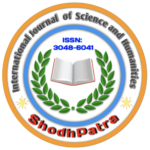| Article Title |
Gandhi’s Political and Educational Thoughts: Applicability and Significance in the Modern Era. |
| Author(s) | Dr. Sanjay Singh. |
| Country | India |
| Abstract |
This essay examines the political and educational ideas of Mahatma Gandhi, as well as their relevance in the modern day. Gandhi's nonviolent philosophy, swaraj (self-rule), and gram swaraj (village self-reliance) influenced international movements for justice and human rights in addition to India's freedom struggle. In a similar vein, his educational philosophy, as expressed in Nai Talim or Basic Education, placed a strong emphasis on manual labor, moral development, and holistic learning. Gandhi's theories have served as an inspiration to leaders and movements around the world, but they have also come under fire for being unrealistic and idealistic in a technologically advanced, globalised world. This essay argues that Gandhi's ideas, despite their historical context, remain relevant today as a framework for moral reasoning in addressing issues such as inequality, violence, climate change, and commercialization. Keywords -Basic Education, Swaraj, Ahimsa, Philosophy, |
| Area | Political Science |
| Issue | Volume 2, Issue 9, September 2025 |
| Published | 17-09-2025 |
| How to Cite | Singh, S. (2025). Gandhi’s Political and Educational Thoughts: Applicability and Significance in the Modern Era.. ShodhPatra: International Journal of Science and Humanities, 2(9), 57-63, DOI: https://doi.org/10.70558/SPIJSH.2025.v2.i9.45345. |
| DOI | 10.70558/SPIJSH.2025.v2.i9.45345 |
ShodhPatra: International Journal of Science and Humanities

 View / Download PDF File
View / Download PDF File